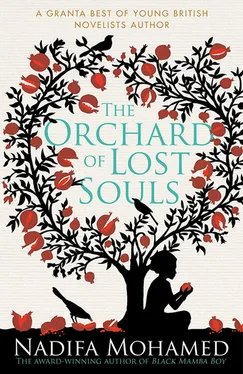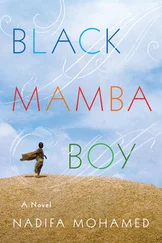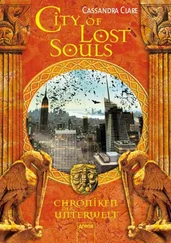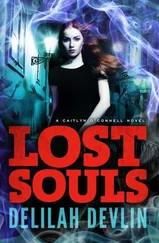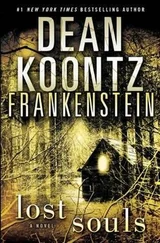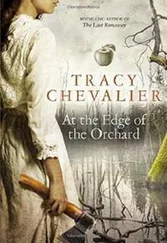‘Yes, Nasra,’ Deqo smiles broadly.
‘Have you ever seen the sea?’
‘Never.’
‘I will take you to Berbera one day, to see my family.’
‘What’s it like there?’
‘The same as Hargeisa but with the sea next to it, and fishermen selling their catch on the beach and Yemenis touting qudar, a kind of date drink, and my mother with her scissors cutting my hair every month.’ Nasra smiles.
She turns on the stereo and then changes the cassette, searching through tape after tape, declaring the provenance of each as if she is a radio presenter: Indian, Arabic, Congolese and American. Deqo cannot tell them apart but likes them all; the room suddenly feels crowded and animated by invisible musicians, singers and dancers. Nasra finds a Somali song and then settles back on the unmade bed, a photo album in her hands. She flicks through it; the photographs have the texture of distant, half-forgotten memories behind the opaque paper and Nasra’s smile fades.
Deqo looks over her shoulder at the images: barefooted young girls playing in the surf, a hard-faced matriarch glowering in front of a savannah studio backdrop, a thin, wild-haired man standing proudly in front of a white boat.
‘Who is that?’ Deqo jabs a finger at the photo.
Nasra wipes away the greasy mark left on the film before answering, ‘My father.’
‘Is he a fisherman?’
‘He was.’ She turns the page quickly and skims through the other photographs without really seeming to see them.
‘I don’t know who or what my father was,’ Deqo says with a nervous giggle. She tries to place an arm on Nasra’s shoulder and then thinks better of it.
‘You’re from the camps, aren’t you?’
‘Yes, Saba’ad.’
‘Well, he was probably a poor nomad then, and your mother a long-haired sultan’s daughter from a village by a river, and they met and ran away together for love and had you. Is that right?’ Nasra jumps from the bed and shoves the album in a drawer.
Deqo almost purrs with delight; Nasra’s story fills her with light and warmth. ‘Yes! Yes! Yes!’ she wants to shout, but she just swings her arms instead.
The truth is so brutal in contrast. She has no knowledge at all of where the rest of her family are; there are no stories passed on by cousins, no villages to return to, no genealogy to pass on if she ever has children of her own. She is like a sapling growing out of the bare earth while others are branches on old, established trees. Her teenage mother had a mark on her neck the shape of a crescent moon and dots burnt into her chest like an old woman, Nurse Doreen had said. That was all the description she had. No face, no body, just burnt dots and a crescent moon to remember a mother by.
‘Who has flooded this damn place?’ shouts Stalin from the courtyard.
‘Oh no,’ whispers Deqo and rushes back to finish the laundry.
As the courtyard shifts from blue to indigo to black, Deqo picks dirt from under her fingernails and feels the bones of the house cracking as it eases into the night. Soon each corner of the house is lit by paraffin lamps, and she falls into a light sleep that dulls the noise around her but doesn’t silence it: footsteps, clicking locks, laughter, faint music, discussion, bed springs, silence. The smell of tobacco wafts over from Nasra’s room to the kitchen.
It is late when Deqo hears a rapping on the back door, insistent bursts every ten seconds. She scrambles to her feet and places her ear close to the door. She peeps through the keyhole and sees a waste ground where rubbish is dumped and charcoal made. She is frightened at the thought of letting that darkness in.
‘Who is it?’ she demands with more courage than she feels.
‘Open up! I’m here for Nasra,’ a deep, male voice replies.
‘I am not allowed to let anyone in.’
He kicks the door. ‘Either let me in or I will find my own way.’
‘I can’t let you in!’ Deqo jams her shoulder against the door.
Silence, and then the scrape of feet up the wall and over the corrugated tin roof. Deqo ducks down as if he might fall on top of her. Within moments a huge man in a long overcoat leaps down into the courtyard. Deqo can just pick out his nose and sneering lips under the shadow of a military beret pulled low over his forehead. He straightens his knees and disappears towards Nasra’s room and Deqo hears Nasra’s door lock just as he reaches it; she hides in the hallway as first Stalin then China pop their heads out of their rooms.
She returns to the courtyard and crouches to spy through the window into Nasra’s room. Deqo’s eyes and ears strain to take in as much of this drama as she can, her face creeping upwards, her nose jabbing the glass. The man towers over Nasra; he hasn’t removed either coat or hat but paces around her as she stands erect in just a red satin underskirt pulled up to cover her breasts, a cigarette burning between her fingers. They don’t speak or touch. Nasra catches sight of Deqo’s eyes in the window and slams her palm against the glass.
Deqo rushes back to the kitchen, ashamed to be caught spying, and throws the blanket over her head; she balls up her hands and digs her nail into her flesh, angry that she has made Nasra angry. She doesn’t cry but sits with her back to the wall feeling bereft. Nasra doesn’t come and eventually she hears the man leave through the back door. She spends another sleepless night in the kitchen, her sense of safety breached, waiting for more giants to jump over the wall and appear right before her in the middle of the night, with guns, or knives, or with nothing but their strong hands to squeeze the life out of her.
Deqo wakes late to footsteps all around her. The charcoal stove burns a few inches from her feet and Stalin kicks her leg to move her out of the way.
‘Deqo, get us some sugar from the shop,’ Nasra asks, as she fans the fire and takes a bundle of notes from her brassiere.
Picking up her caday from the mat, still bleary-eyed, Deqo stumbles out into the street, brushing her teeth while she walks. She is met by a cacophony of crowing cockerels, braying donkeys resisting their harnesses, young boys play fighting in school uniforms, women shaking buckets of feed at their goats, and the drumbeat of adolescent girls beating carpets with sticks. She stops to watch a cat suckle the kittens mewling around her and then continues onto the corner shop feeling content with her new place in the world.
In the camp it was as if each day brought a new threat — maybe a fire, or flooding, a new outbreak of illness, or someone would die inexplicably; life was just a tightrope to be walked pigeon-toed. Deqo and Anab would imitate the German doctors in the camp by checking each other’s pulses, feeling their foreheads for fevers, and knocking sticks against their joints; they made a joke of it but the fear of falling sick was always there. Of the children in the orphanage, five had already died, three from disease and two in a violent clash between different clans. She remembers the tubes of reed matting they had been wrapped in before burial, the rolls so narrow and small they resembled cigarettes.
During the fighting that killed the two boys, the aid workers were sent away for a few days, and it had occurred to Deqo then that they belonged somewhere else, that this camp was just one of many camps they had seen, that their real homes were far away, safe and rich. Nurse Doreen was the only one to stay behind. She was like a mule, tireless and uncomplaining; the harder it was in the camp, the more excited she seemed. She had tried to describe her childhood in Ireland to Anab and Deqo; she had a pony, she said, and cows, and it rained nearly every day she could remember, and it wasn’t the kind of rain people looked forward to here but a hard, cold, stinging one that made her grandmother’s bones ache. Deqo had liked playing with Nurse Doreen’s long, grey-streaked hair as she spoke and imagining it the tail of her own horse; Nurse Doreen had liked Deqo to place her cool fingers on the red, burnt skin of her shoulders where it refused to go brown like the rest of her arms. Nurse Doreen was good, was goodness; she gave that word meaning in a way few people did.
Читать дальше
